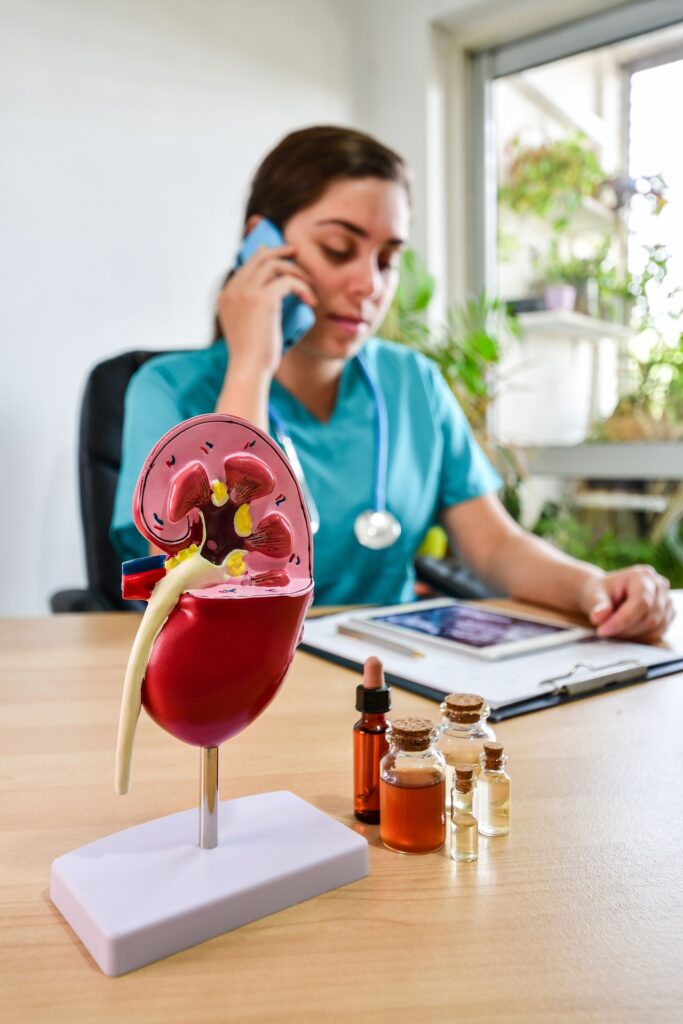Kidney disease is a significant health concern affecting millions of people worldwide. When your kidneys become damaged due to various causes such as chronic conditions, infections, or exposure to toxins, their ability to function properly is compromised.
This raises the question: can kidneys repair themselves, or are these damages permanent? While the ability to reverse kidney disease depends on the cause and extent of the damage, there are instances where early intervention can halt or even reverse kidney disease progression. Let’s learn more about it.
Understanding Kidney Failure
Kidney failure, also called renal failure, means that your kidneys are not functioning as they should. There are two main types of kidney failure to be aware of.
Acute Kidney Failure: This is when your kidneys suddenly stop working over a short period. Acute kidney failure can be caused by factors like severe dehydration, infections, or blockages. The good news is that with the right treatment, it’s often possible to reverse kidney disease in these cases. Your kidneys can return to normal function after the underlying issue is resolved.
Chronic Kidney Failure: Unlike its acute counterpart, chronic kidney failure develops slowly over time, and is often linked to prolonged issues such as diabetes or high blood pressure. Unfortunately, chronic kidney disease cannot be reversed. The damage to the kidneys is permanent, but there are ways to manage and slow its progression.
Symptoms of Kidney Disease
- Fatigue and weakness
- Trouble sleeping
- Swelling in your feet and ankles
- Puffiness around your eyes, especially in the morning
- Dry and itchy skin
- Frequent urination, especially at night
- Blood in urine
- Persistent puffiness or swelling in the face
- Muscle cramps
- Shortness of breath due to fluid build-up
Can Kidneys Repair Themselves?
So if you’re asking, “Can kidneys repair themselves?” the answer largely depends on the severity and type of kidney damage.
For acute kidney failure, the kidneys can often repair themselves once the cause of the failure is addressed. With prompt medical intervention, it’s possible to reverse kidney disease and return to normal function. However, if the kidneys are severely damaged or if the kidney tissue is scarred, they cannot fully repair themselves.
In chronic kidney failure, the damage tends to be irreversible. The kidneys are unable to regenerate lost tissue or repair significant damage on their own. This is why it’s crucial to detect and manage kidney disease early to prevent further deterioration.
Tips for Managing Kidney Disease
While it’s impossible to reverse kidney disease in chronic cases, managing the condition effectively can help slow its progression and improve your quality of life—and the same strategies can also play a significant role in reversing acute kidney disease. Here are some tips to help you manage kidney conditions:
- Stay Hydrated: Drink the recommended amount of water to help your kidneys function properly. For the average adult, that’s about eight glasses of water a day.
- Maintain a Healthy Diet: Focus on a balanced diet that is low in sodium, potassium, and phosphorus. Your doctor or a registered dietitian can help you create a personalized meal plan that suits your specific needs.
- Monitor Blood Pressure and Blood Sugar Levels: Keep these under control to reduce the strain on your kidneys.
- Avoid Smoking and Limit Alcohol Intake: These habits can further damage your kidneys.
- Regular Check-ups: Regular visits to your healthcare provider can help monitor your kidney health.
Discover Kidney Health with Texas Kidney Institute
While the question of whether you can reverse kidney disease can’t be answered with a simple “yes” or “no,” understanding the type of kidney failure you have is a crucial first step. Acute kidney failure can often be reversed with timely intervention, but chronic kidney failure demands a focus on management and prevention.
Remember, taking proactive steps to care for your kidneys can make a significant difference in your overall health. For more guidance and support, reach out to the Texas Kidney Institute. Our team of experts can provide valuable insights and care tailored to your needs.

